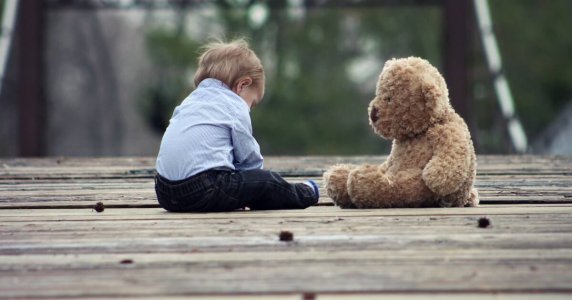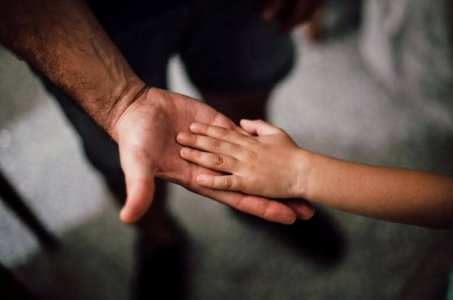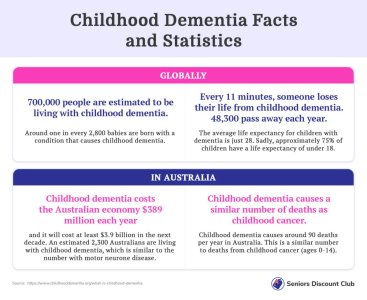Heartbreaking story of an Aussie mum whose three children face the same shocking diagnosis
- Replies 5
It’s a heartbreaking situation that no one should have to face.
A mum of three has been struck with the devastating news that all of her children have been diagnosed with the same terminal illness.
When an Adelaide mother, Renee Staska, found out her youngest son had a rare genetic disorder, she decided to have her other two children tested for peace of mind.
Ms Staska's youngest son was born with an enlarged spleen and liver. She was told that the condition would get better with time. But when it took longer than expected, their doctor ran a genetic panel test to ensure nothing else was wrong.
However, the results of the tests ended up becoming her worst nightmare.
Hudson was diagnosed with a type of childhood dementia called Niemann-Pick Type C.
At that point, Ms Staska thought that the safest thing to do was to have the same genetic test done on her two other children. The results, unfortunately, came back positive as well.
‘I thought I'll just blood test them, get it over and done with [so I can] stop worrying and then they both came back positive with it as well,’ Ms Staska told reporters.
Niemann-Pick Type C is one of more than 70 diseases under the umbrella of childhood dementia.
Ms Staska said no other members of her family have the ultra-rare condition, and at the time of their diagnosis, her children were not showing any signs or symptoms.
Ms Staska was told the condition was ‘terminal’ like adult dementia, meaning there is no cure for it.
Niemann-Pick Type C causes an accumulation of cholesterol and other fatty acids in the body's cells which affects the brain and other organs, leading to progressive intellectual decline, loss of motor skills, seizures and dementia.
‘It's ever-present. Even on our good days, it's always there, always hanging over our heads,’ Ms Staska shared.
According to Dementia Australia, one in every 2,800 babies globally are born with a condition that causes childhood dementia. An estimated 2,300 Australians are living with childhood dementia.
The average lifespan for a child living with dementia is 28 years old. Sadly, approximately 75 per cent of children have a life expectancy of under 18.
According to a State of Childhood Dementia report, about 90 children succumb to the disease in Australia every year, which is a similar number of deaths as from childhood cancer.
Right now, Ms Staska’s three children are ‘blissfully unaware’ of their current situation. However, there are tell-tale signs that she has noticed.
‘They have very short attention spans,’ she shared before adding that all three children are ‘very impulsive’.
‘The emotional scale is 0 to 100 all the time,’ she continued.
‘They have a lot of appointments and hospital trips, but they don't know that not everybody does. Otherwise, they look normal, and probably from afar, you would not pick that anything is wrong at all.’
Currently, there is little funding going toward researching how dementia manifests in children.
Kristina Elvidge, Head of Research at the Childhood Dementia Initiative, said childhood dementia gets 20 per cent less funding than other comparable diseases.
‘If we are going to get the treatments for children like Renee's, we will need a lot more funding,’ she explained to reporters.
‘We need to raise awareness, and we need meaningful inclusion of childhood dementia in policies, such as the dementia action plan that the government is currently working on,’ she continued.
There are studies being developed to fight against the disease. Patches that stop the build-up of toxins in the brains of children with dementia are currently being developed by the University of Tasmania and Murdoch University.
However, Ms Elvidge warned that technology is still new and a long way off from helping families like Ms Staska’s.
‘I absolutely have to hold on to hope that further research can happen because time is not on our side,’ she stated.
You can watch the full report below:

Have you or someone you know ever experienced a similar life-altering diagnosis? We are here for you if you would like to share your story.
A mum of three has been struck with the devastating news that all of her children have been diagnosed with the same terminal illness.
When an Adelaide mother, Renee Staska, found out her youngest son had a rare genetic disorder, she decided to have her other two children tested for peace of mind.
Ms Staska's youngest son was born with an enlarged spleen and liver. She was told that the condition would get better with time. But when it took longer than expected, their doctor ran a genetic panel test to ensure nothing else was wrong.
However, the results of the tests ended up becoming her worst nightmare.
Hudson was diagnosed with a type of childhood dementia called Niemann-Pick Type C.
At that point, Ms Staska thought that the safest thing to do was to have the same genetic test done on her two other children. The results, unfortunately, came back positive as well.
‘I thought I'll just blood test them, get it over and done with [so I can] stop worrying and then they both came back positive with it as well,’ Ms Staska told reporters.
Niemann-Pick Type C is one of more than 70 diseases under the umbrella of childhood dementia.
Ms Staska said no other members of her family have the ultra-rare condition, and at the time of their diagnosis, her children were not showing any signs or symptoms.
Ms Staska was told the condition was ‘terminal’ like adult dementia, meaning there is no cure for it.
Niemann-Pick Type C causes an accumulation of cholesterol and other fatty acids in the body's cells which affects the brain and other organs, leading to progressive intellectual decline, loss of motor skills, seizures and dementia.
‘It's ever-present. Even on our good days, it's always there, always hanging over our heads,’ Ms Staska shared.
According to Dementia Australia, one in every 2,800 babies globally are born with a condition that causes childhood dementia. An estimated 2,300 Australians are living with childhood dementia.
The average lifespan for a child living with dementia is 28 years old. Sadly, approximately 75 per cent of children have a life expectancy of under 18.
According to a State of Childhood Dementia report, about 90 children succumb to the disease in Australia every year, which is a similar number of deaths as from childhood cancer.
Right now, Ms Staska’s three children are ‘blissfully unaware’ of their current situation. However, there are tell-tale signs that she has noticed.
‘They have very short attention spans,’ she shared before adding that all three children are ‘very impulsive’.
‘The emotional scale is 0 to 100 all the time,’ she continued.
‘They have a lot of appointments and hospital trips, but they don't know that not everybody does. Otherwise, they look normal, and probably from afar, you would not pick that anything is wrong at all.’
Currently, there is little funding going toward researching how dementia manifests in children.
Kristina Elvidge, Head of Research at the Childhood Dementia Initiative, said childhood dementia gets 20 per cent less funding than other comparable diseases.
‘If we are going to get the treatments for children like Renee's, we will need a lot more funding,’ she explained to reporters.
‘We need to raise awareness, and we need meaningful inclusion of childhood dementia in policies, such as the dementia action plan that the government is currently working on,’ she continued.
There are studies being developed to fight against the disease. Patches that stop the build-up of toxins in the brains of children with dementia are currently being developed by the University of Tasmania and Murdoch University.
However, Ms Elvidge warned that technology is still new and a long way off from helping families like Ms Staska’s.
‘I absolutely have to hold on to hope that further research can happen because time is not on our side,’ she stated.
You can watch the full report below:
Key Takeaways
- Australian mum Renee Staska was left heartbroken when she learned her three children were suffering from the same terminal disease.
- Her three children have all been diagnosed with Niemann-Pick Type C, which is one of more than 70 diseases under the umbrella of childhood dementia.
- Ms Staska shared her family's emotional journey on social media to encourage support and create a sense of community.
- The average lifespan for a child with dementia is just 28 years.










